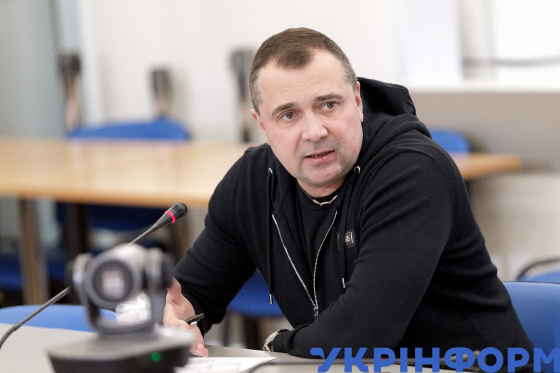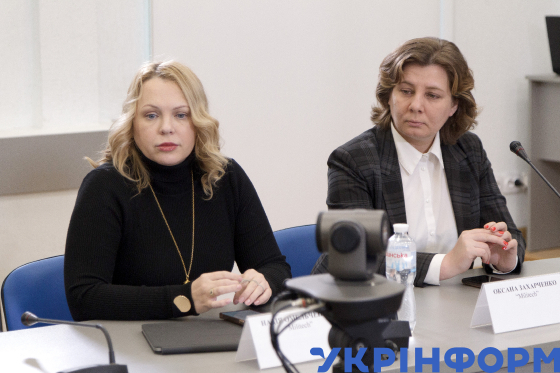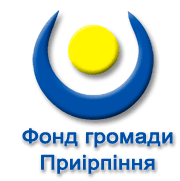Large-scale and high-quality training of UAV operators requires changes to the Ministry of Defense regulations and implementation of relevant state standards
In addition to increasing the production of various unmanned aerial vehicles (UAVs) for the Armed Forces of Ukraine (AFU), it is imperative to increase the number of trained UAV operators who will have the appropriate state certificates and will be able to effectively destroy Russian occupiers and conduct aerial reconnaissance. To achieve this, the Ministry of Defense of Ukraine needs to amend some of its regulations and, with the participation of UAV manufacturers, training centers and the Ministry of Education and Science of Ukraine, develop and approve appropriate state training programs and certification of trained UAV operators. In addition, local governments and military administrations can and should play an important role in solving this problem.
This was discussed at the roundtable “Actual Problems of UAV Operators Training” held on December 19 at the state news agency Ukrinform at the initiative of the online analytical publication KyivVlada.
https://www.youtube.com/watch?v=x_BiHJsiGAg&t=1s
Recently, President of Ukraine Volodymyr Zelenskyy announced at a press conference that one million FPV drones will be produced in Ukraine next year. Prior to that, the President emphasized that protecting Ukraine from the Russian Federation is everyone’s business, especially those in the rear, including local governments.
At the same time, since the main customer of UAVs is the Ministry of Defense at the request of the General Staff of the Armed Forces of Ukraine, the first question that was discussed was why the Ministry of Defense does not pay private centers for training UAV operators? According to Anton Podlutskyi, the host of the roundtable and co-founder of KyivVlada, other government agencies, such as the State Border Guard Service of Ukraine, the Ministry of Digital Transformation of Ukraine, and the National Police, pay for the training of UAV operators for their own needs.
Maksym Polyvianyi, Executive Director of the National Association of Defense Industry Enterprises of Ukraine (NAUDI), noted that the main problem with the Ministry of Defense not contracting and paying for UAV operator training is the lack of an appropriate regulatory framework. “The Ministry of Defense, and now the Defense Procurement Agency, which will start purchasing weapons and military equipment, including UAVs, next year, has no regulatory basis for separately signing contracts for training services,” said the NAUDI executive director.

In his professional opinion, it is necessary to create a regulatory framework for certification of training centers for UAV operators of any purpose – from aerial reconnaissance to FPV drones, from tactical UAVs to strategic UAVs. “Each contract for the purchase of UAVs from a manufacturer should include several training sessions for representatives of the Armed Forces. The manufacturer should develop a training program – time, theory, practice, all of this is specified in the contract and carried out directly by the manufacturer,” emphasized Maksym Polyvianyi.
He also said that NAUDI and the National Aviation University (NAU) have launched a joint program under which the Association awards scholarships to students who will work as technical and engineering specialists at UAV manufacturing companies.
Nadiia Omelchenko, CEO of Militech, a drone manufacturing company, who is involved in the development of state standards for UAV operator education, emphasized that a systematic and high-quality solution to the problem requires collaboration between manufacturers, the Ministry of Defense, the Ministry of Education, and volunteer movements.

“The military says there are not enough training centers for UAV operators. However, not every training center, even from manufacturers, can issue the appropriate certificate. However, we, as manufacturers, are very interested in having well-trained specialists flying our UAVs. Our training center first teaches the theoretical part, then simulator training, and out of a group of 10-20 students, not all of them make it to the third part of the training – field tests. But we can only organize field tests in cooperation with the Armed Forces. So even here we need collaboration,” said the Militech CEO.
Denys Cherednychenko, a member of the board of founders of DEVIRO (manufacturer of Leleka and Leleka-100 UAVs), said that his company has gone through the entire difficult process of certifying its UAVs and training its operators, having received a certificate from the State Aviation Service of Ukraine. “Our cadets receive state-issued certificates that have all the necessary details, so our cadets receive an appropriate military specialty and a salary supplement… We now have more than 30 instructors who have official status and can teach the relevant program. We also accept civilians for training,” said a member of the DEVIRO founding board, noting that training one crew (three operators) of the Leleka-100 costs approximately 300 thousand hryvnias.
Nevertheless, Denys Cherednychenko noted, his company provides training for UAV operators free of charge, as the Ministry of Defense has no procedures that would allow the defense department to pay for this work. “Experts in the Ministry of Defense are aware of this issue, but they are severely limited by the existing regulatory framework, which does not allow private centers to receive state funding for training UAV operators,” said the DEVIRO representative.
Denys Cherednychenko drew attention to another problem: state training centers, including those of the Ministry of Defense, train UAV operators according to a shortened program and do not grant the status of an external UAV operator: “That is, cadets are students of courses that receive certificates that the Ministry of Defense itself does not recognize and does not provide after training in the relevant military accounting specialty.”
The DEVIRO founding board member believes that UAV manufacturers and private operator training centers should work closely with the Ministry of Defense to help defense experts make the necessary changes to the regulations governing the MoD.
“For each type of UAV, a corresponding state-approved educational program should be created, so we can talk about a full-fledged certification of operator training,” emphasized Denys Cherednychenko.
Vadym Ivchenko, MP and representative of the Verkhovna Rada Committee on National Security, Defense and Intelligence, emphasized that public-private partnership should be the most appropriate format for addressing the issue of UAV operator training. It should be noted that the relevant law was adopted in Ukraine in the summer of 2010.
At the same time, the MP agrees that the Ministry of Defense should now amend its own bylaws to have the right and opportunity to pay private entities for training UAV operators for the needs of the Armed Forces of Ukraine.
Vadym Ivchenko also believes that it is the UAV manufacturers who should offer the state a vision for the development of this segment of the military equipment market – a strategy for 10-15 years. At the same time, the MP believes that private UAV manufacturers should establish training centers.
Denys Cherednychenko agreed with this, but also reminded that the creation and operation of training centers requires considerable funds that could be used to improve drones. “For private companies to be interested and not afraid to invest in the creation of their training centers, the Ministry of Defense should create an appropriate regulatory framework,” said a member of the founding board of DEVIRO, urging fellow UAV manufacturers to obtain certificates from the State Aviation Service, as this facilitates a working dialogue with the Ministry of Defense.
Maksym Polyvianyi, Executive Director of NAUDI, reminded that many UAVs are being created in Ukraine, which are lethal weapons. “A private company will not be able to train operators of such drones without ammunition, a program to provide specially equipped training grounds… These issues cannot be resolved without the participation of the Ministry of Defense,” emphasized Maksym Polyvanyi.
He called on all private UAV manufacturers and private operator training schools to join the work on developing changes to the existing regulatory framework of the Ministry of Defense.
Anton Podlutskyi, the roundtable’s host, emphasized that all educational institutions in Ukraine are under the supervision of the Ministry of Education and Science, and there is not a single educational institution that is fully under the supervision of the Ministry of Defense. Therefore, the role of the Ministry of Education in the process of training UAV operators – from secondary schools to universities – is crucial.
In response, Maksym Polyvianyi noted that military universities still have programs approved by the Ministry of Defense. And, in his opinion, changes in educational programs are important, but these changes will not solve the current challenges now, but only after some time.
However, according to Militech CEO Nadiia Omelchenko, changes to educational programs are relevant. “We (the company’s representatives) participate in the team that prepares state professional standards for UAV operators. It involves not only private companies but also educational institutions. This is not happening very fast, but I think these standards will be announced in some time,” said Nadiia Omelchenko.
The issue of cooperation between private UAV manufacturers and training centers with local governments and military administrations was also discussed.
Anton Podlutsky, the host of the roundtable, emphasized that Kyiv, with its multibillion-dollar budget, is fully capable of launching a powerful drone production and training centers that will provide the Armed Forces with thousands of professionally trained UAV operators. As a reminder, the Kyiv City Military Administration (KCMA) is currently the main governing structure in the capital of Ukraine, and the head of the KCMA is the deputy head of the KCMA for civilian affairs.
Denys Cherednychenko said that his company has a positive experience in working with local governments and military administrations. “Everyone is happy to help – they provide places for training, help us communicate with law enforcement agencies, etc.”, said the member of the DEVIRO founding board.
Maksym Polyvianyi noted that some difficult issues can be resolved on the ground without additional budgetary funds if fruitful communication and cooperation with the military administration or local government is established.
According to Nadiia Omelchenko, local authorities are open to cooperation, but need very specific requests and proposals. Her colleague from Militech, Oksana Zakharchenko, emphasized that it is necessary to continue to increase the attention of the media, society and government to the training of UAV operators.
Armed Forces of Ukraine, KyivVlada, Maksym Polyvianyi, Ministry of Defense of Ukraine, Nadiia Omelchenko, Volodymyr Zelenskyy, Денис Чередниченко

Volunteers of the Pryirpinia Community Foundation have started sewing unique products – portable stretchers for wounded soldiers of the Armed Forces of Ukraine. Over the summer, about 185 units have already been produced for the needs of the military. In addition, 280 pillows for hospitals and staging areas have been sewn in the sewing shop. This is stated on the organization’s Facebook page.
Sewing of the unique and at the same time highly demanded products by military paramedics and stabilization centers was started by Irpin volunteers. Since the beginning of the summer, they have already produced about 185 units of tactical stretchers,” the Charitable Foundation’s Facebook page reports.
Tactical soft frameless stretchers are soft stretchers for evacuating and carrying the wounded or for carrying loads manually. Sanitary stretchers are designed to transport patients, injured (wounded) to a sanitary transport for further medical care. Such stretchers are used to transport victims over long distances. Also, these stretchers can be used as an awning or as a bedding to protect against moisture. The tactical soft frameless stretcher has 5 pairs of handles: 4 pairs along the stretcher, 1 pair of handles at the ends. The average market price of such stretchers is 1500 UAH.
“We learned about the need for stretchers and pillows from paramedics and stabilization centers themselves, because we regularly deliver medicines and medical supplies to them,” says Tetiana Lagovska, executive director of the Pryirpin Community Foundation. “We started with a few electric sewing machines that our volunteers found and camouflage fabric that was also found by volunteers. At first, cutting and sewing were localized right in the foundation’s premises, and later the volunteers began to do some of the work at home. Among them, by the way, are residents of the modular town in Gostomel who lost their homes during the fighting.”
According to Lagovska, the sewing shop currently has 15 electric sewing machines, some of them even professional, from former garment factories, and a cutting table made by the husband of one of the volunteers. The raw materials, i.e. camouflage fabric, are provided by other benefactors, while the threads were purchased at the expense of the volunteers. As of today, 185 stretchers and 280 pillows – both regular and anti-decubitus – have been made and filled with cereals, chestnuts, and acorns. The paramedics of the 72nd Black Cossacks Brigade, which is currently fighting near Bakhmut, and the Kraken unit were among the first to receive the stretchers. Other recipients include military units in Kharkiv, Kherson and eastern Ukraine. As well as hospitals in Kyiv, Kyiv region, and Vinnytsia oblast, where wounded Ukrainian defenders are treated.
“If in the first six months of the large-scale aggression the Ukrainian Armed Forces soldiers needed bulletproof vests, helmets and even clothes, now the most urgent needs are medicines and medical supplies and equipment,” comments Oleksandr Tyhov, a former soldier of the 72nd Brigade and Chairman of the Public Council at the Bucha District State Administration. According to him, civil society organizations in the Bucha region understand these needs. Thus, the Local Communities Movement and its volunteers Myroslav Sorochenko and Oleh Solomakha constantly send medical supplies to the front line – bandages, dressings, plasters, bandages, medical clothing – and hospitals in Kyiv and Kyiv region receive the necessary medical supplies and medicines. With the active organizational involvement of Olga Kvasova, Deputy Head of the Public Council.
Kvasova, the “Ukraine Native” Charitable Foundation constantly delivers medicines to hospitals, and other philanthropists have provided family medicine outpatient clinics in the Buchanan district with much-needed generators. The same “Pryirpinya Community Foundation”, where members of the public council Tetiana Lagovska and Oleksandr Holizdra volunteer, implemented the “Social Medicine” program this year, handing over UAH 9 million worth of antibiotics to hospitals and public organizations from all over Ukraine with the organizational participation of the Public Council at the Bucha District State Administration.
Armed Forces of Ukraine, Holizdra, Pryirpinia Community Foundation, Лаговська

On September 27, shareholders of IC Veltliner (Kyiv) will consider granting the Supervisory Board the authority to give consent to transfer assistance for the needs of the Armed Forces of Ukraine within 15% of the amount of actually collected insurance payments for voluntary personal types of insurance for the period from September 27, 2022 until the date of decision by the Supervisory Board.
According to the agenda of the meeting of shareholders, published in the information disclosure system of the National Securities and Stock Market Commission, shareholders also plan not to distribute profit for 2021, not to accrue or pay dividends to shareholders, to make deductions to the reserve fund of 5% of profit for the year in the amount of UAH 73.9 thousand hryvnia and allocate UAH 1.404 million for current expenses of economic activity.
As reported, IC Veltliner has been the legal successor of PJSC European World Insurance House since 2012. It has 28 licenses for voluntary and compulsory types of insurance, and offers customers more than 100 insurance products.
From the second half of 2021, the teams of IC Veltliner were joined by the teams of three other insurance companies, of which one insurer left the market of its own accord, another was sold and changed its specialization.